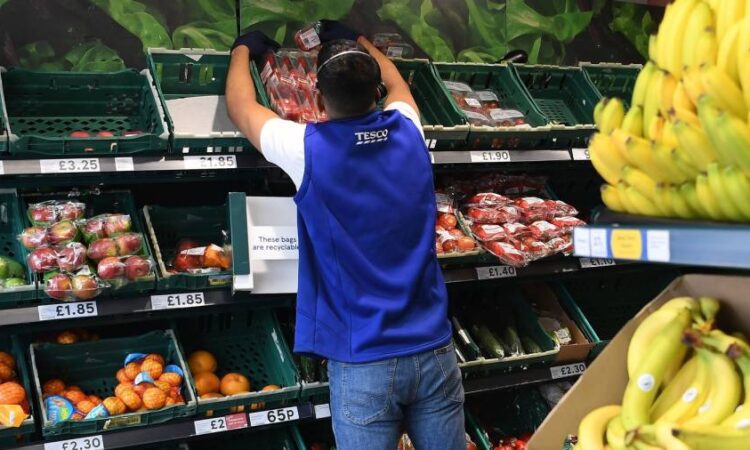
Receive free UK inflation updates
We’ll send you a myFT Daily Digest email rounding up the latest UK inflation news every morning.
UK businesses expect to raise their prices at a fast pace in the coming year in response to workers’ demands for higher wages, according to a survey by the Bank of England that reinforces concerns about high inflation.
The BoE decision maker panel, a regular survey of chief financial officers at UK companies, showed that in the three months to June businesses expect output price inflation to be 5.3 per cent in the next year.
This was only marginally down from the 5.4 per cent recorded in the poll in the three months to May.
The new survey published on Thursday also found that chief financial officers expect workers’ wages to grow by 5.3 per cent in the coming year. That compares to growth of 5.2 per cent recorded in the previous poll.
Actual wage growth reported by chief financial officers increased to 7.1 per cent in June, from 6.7 per cent in May.

The BoE survey findings suggest “that optimism that wage growth is easing towards normal levels soon may be misplaced”, said George Moran, economist at Nomura.
He added the wage growth showed “only a marginal rise, but the fact that it didn’t fall is significant”.
Ruth Gregory, economist at Capital Economics, said: “With wage expectations of businesses remaining elevated, higher wages are becoming embedded in businesses’ future budgets.”
The survey of chief financial officers is an important source of price and wage information when the central bank takes decisions on interest rates.
The central bank has raised rates 13 times since late 2021 as it tries to tackle high inflation and bring it down to the BoE target of 2 per cent.
After official data showed inflation remained stuck at 8.7 per cent in May, the BoE last month increased rates by a larger than expected half percentage point to 5 per cent. Rates are at their highest in 15 years.
The survey provided better news on recruitment as the share of businesses saying that hiring was more difficult than usual continued to decline from a record high of about 90 per cent in the summer of last year.
Despite the fall, 58 per cent of companies were still struggling to find workers in June.
The survey was released as separate data showed the negative impact of rising interest rates on the construction sector, including housebuilding.

The S&P Global/Cips UK construction purchasing managers’ index, a measure of sector activity, fell to 48.9 in June, from 51.6 the previous month, and the lowest level since January.
Tim Moore, economics director at S&P Global Market Intelligence, which compiles the data, said “weaker housing market conditions in the wake of higher borrowing costs acted as a major constraint on UK construction output in June”.





